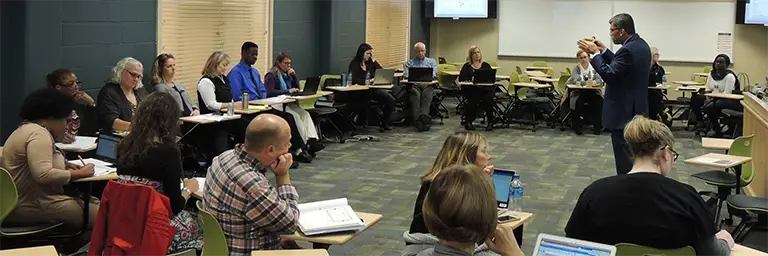
PhD in Nursing
Preparing nurse scientists.
The PhD in Nursing program at the University of North Dakota will educate you to synthesize in-depth knowledge of rural health and underserved populations, integrate philosophical and theoretical underpinnings of science to guide research, conduct ethical and rigorous research, and contribute to a global community of scholars.
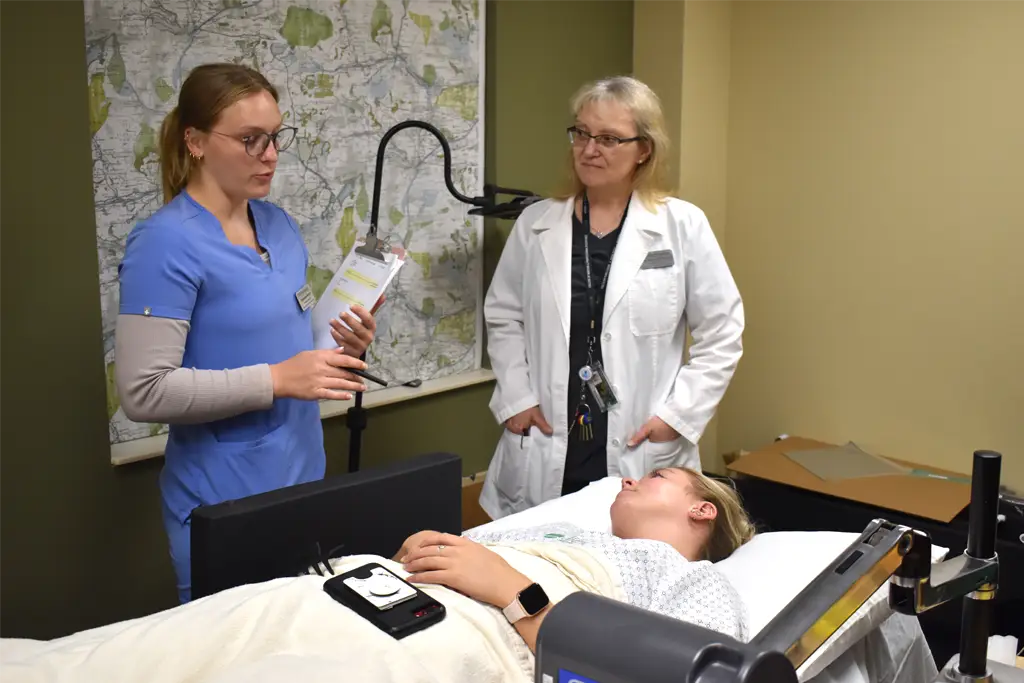
Application Information
Applications open in January each year.
- Application priority deadline is April 1.
- Final deadline will be July 1.
Collaborative Opportunities
At UND, our PhD in Nursing students engage in a highly collaborative research environment, working alongside faculty and interdisciplinary teams on projects that address rural health, underserved populations, and other critical areas of healthcare. Students have the chance to contribute to ongoing studies, develop original research, and participate in initiatives that translate evidence into practice and policy. These collaborations help build professional networks, strengthen research skills, and prepare students to lead innovative projects in academic, clinical, and community settings.
Online Courses
You’ll receive the convenience of online learning with the personal contact and connection of being with classmates through online tools to communicate across distances, allowing you to connect to others and their ideas and present information.
Program at a Glance
Join a highly collaborative environment at the University of North Dakota with unique resources to study rural health in behavioral and environmental contexts.
You will gain skills in:
- Rural health, rural and underserved populations, and rural programs and policies
- Conduct original research as a nurse scientist, which includes rural and underserved populations
- Disseminating new knowledge through publications and presentations
- Obtaining grant funding to support your research
Engage in an annual face-to-face intensive that supplements your online learning and immerses you in a community of scholars.
Before graduation, you’ll be required to develop and submit a nationally competitive grant to support your doctoral research, submit an article for publication to a refereed journal, and present dissertation progress or results to a regional or national audience.
PhD in Nursing Online Research Opportunities
UND has a variety of research opportunities for our online Nursing PhD students. You'll get the opportunity to collaborate on active research with the:
Nursing PhD Program Outcomes
Upon completion of the PhD degree, students will possess the following abilities:
- Synthesize in-depth knowledge of behavioral and environmental aspects of rural health and underserved populations
- Discuss the need to conduct research with rural and underserved populations
- Translate nursing research to inform healthcare practice and policy
- Integrate philosophical and theoretical underpinnings of science to guide research
- Conduct original research that is ethical and rigorous
- Provide professional and research mentorship to others
- Contribute to a global community of scholars
Alumni Stories
Our alumni share why they pursued UND's PhD in Nursing program.
The University of North Dakota’s online Nursing PhD program has cultivated many remarkable nurse leaders who are transforming the field through research, education, and practice. One such alumna is Tanya Trotter, PhD, APRN, PHCNS-BC, a System Nurse Scientist at Premier Health in Dayton, Ohio.
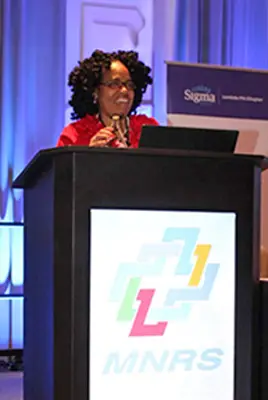
A Nurse Scientist Leading Change
Trotter serves as the System Nurse Scientist for Premier Health, a healthcare system comprising five hospitals, including a 1,000-bed Level I trauma center. Her role involves conducting and communicating research, supporting evidence-based practice (EBP) initiatives, and fostering interdisciplinary collaboration among Premier Health’s 7,000 staff nurses and 600 advanced practice nurses.
Additionally, she plays a pivotal role in Premier Health’s Magnet designation process and strengthens academic partnerships with Wright State University’s (WSU) College of Nursing.
The Path to a Nursing PhD at UND
Dr. Tanya Trotter’s nursing journey began with a BSN, an MSN, and certification as a Clinical Nurse Specialist (CNS). Her career before her PhD spans roles in nursing education, clinical trials, and as an advanced practice nurse in an outpatient stroke and general neurology setting.
It was her dedication to understanding the challenges faced by her stroke patients and their caregivers that inspired her to pursue a PhD.
“My stroke patients appeared to be very depressed, and their caregivers appeared to be very burdened with the caregiver role,” she explains. “I wanted to understand why this was occurring and what nurses do to improve stroke patients and their caregivers’ outcomes.”
Choosing UND for Doctoral Studies
In searching for a school, Trotter found the perfect fit in UND’s hybrid, synchronous online PhD Nursing program, which offered the flexibility and support she needed to balance her academic and professional commitments.
“The combination of online synchronous classes and intensives each quarter offered the support and stability I felt I needed to be successful,” she recalls. “The program was also very affordable to me as an out-of-state student.”
Advancing Nursing Science
For her dissertation, Trotter conducted a mixed-methods study on depressive symptoms in stroke survivors and caregiver burden. She identified significant findings, including the elevated risk of depression among caregivers with a history of mental health challenges and spouses or significant others acting as primary caregivers.
“Stroke survivors described their experience with depressive symptoms after stroke and how experiencing a stroke changed their identity and relationships with others,” Trotter explains. “My research adds to nursing literature insight… Nurses should pay special attention to stroke caregivers who are spouses or significant others and provide them with information about symptoms of depression and caregiver burden and when to alert their primary care providers so they can receive prompt treatment.”
Professional Growth and Mentorship
Trotter credits the UND Nursing PhD program with fostering her growth both personally and professionally. The faculty guided her through the dissertation process and encouraged her scholarly pursuits. With their support, she was involved in publishing or co-publishing five peer-reviewed articles, including co-publishing with Dr. Dawn Denny, PhD, RN, ONC, award-winning research on preoperative nutritional status and postoperative delirium risk in older adults.
“I believe it is vital the PhD prepared nurses be present in the clinical setting to advance nursing research to improve patient and nurse outcomes,” Trotter shares.
Trotter also had opportunities to make an impact through leadership roles in professional organizations like Sigma Theta Tau and the Midwest Nursing Research Society (MNRS). She mentors aspiring nurse researchers and collaborates with interdisciplinary teams to improve healthcare outcomes.
“The most significant advice I can give to a prospective PhD student is to recognize this academic pursuit is not like anything you’ve ever done. You will grow and evolve mentally, spiritually, and intellectually. It is a MARATHON!” But she adds, “It is worth it, and I am eternally grateful I chose UND’s College of Nursing and Professional Disciplines to pursue my PhD in nursing!”
When pursuing a doctoral degree, the path is as much about personal growth as it is about professional advancement.
Originally from South Dakota, Stephanie Orth, PhD, RN, has spent the last six years on the Oregon Coast, residing just a mile from the Pacific Ocean. Currently, she serves as a retention specialist and NCLEX/HESI Coach at Nightingale College, where she works with a team of colleagues to support RN and PN nursing students and licensure applicants from rural, diverse, and underserved backgrounds.
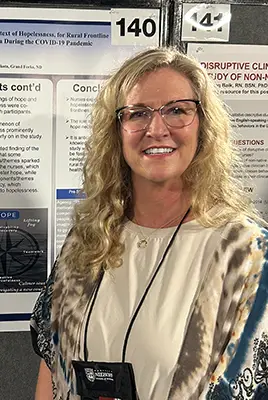
Finding a Distance-Friendly PhD Program
Stephanie Orth’s nursing journey began with teaching as an adjunct clinical and lab instructor for obstetric undergraduate nursing students. Inspired by her teaching experiences, she pursued her Master’s in Nursing Education. This decision laid the groundwork for her eventual PhD pursuit.
In her 4th year as a nursing program specialist with the South Dakota Board of Nursing, Orth’s mentors—many of whom held doctoral degrees—encouraged her to take the next step in her academic journey. Their influence, coupled with her drive to expand her expertise, led her to UND’s program.
Orth selected UND’s Nursing PhD program for its distance-learning flexibility and proximity to her then-home in the Black Hills. “If I needed to drive there to visit my advisor or faculty, I could get there in one day,” she explains. “...and I had heard positive things about UND’s program from my Board of Nursing colleagues.”
Researching Hope in Times of Crisis
Orth’s dissertation emerged from deeply personal and professional experiences. Initially inspired by her mother’s battle with terminal lung cancer and the concept of hope, she formulated a research question with guidance from her PhD faculty. “I had always had a passion for qualitative research and women's health,” says Orth.
Her research shifted during the COVID-19 pandemic, as accessing terminally ill women to do a study on hope was no longer feasible during quarantine times. She shifted to observing the challenges faced by rural frontline nurses and explored the complex dynamics of hope and hopelessness in their lives.
Her study, An Exploration of the Meaning of the Phenomenon of Hope, in the Context of Hopelessness, for Rural Frontline Registered Nurses in South Dakota, North Dakota, and Minnesota during the COVID-19 Pandemic, revealed critical insights:
- Hope played a vital role in fostering strength, mobilizing resources, and building resilience.
- Snyder’s Hope Theory highlighted how agency (motivation) and pathways could be leveraged to navigate and intervene in future healthcare crises.
- Understanding hope can guide strategies to support and retain rural frontline nurses during future healthcare challenges.
Growth and Collaboration Opportunities
The UND PhD program not only honed Orth’s academic abilities but also expanded her professional network. “The program truly changed my life and my nursing career trajectory,” she shares. It inspired her long-term goal of writing a textbook on hope and agency for nursing faculty someday.
Orth has already begun sharing her expertise through conference presentations, including the Midwest Nursing Research Society (MNRS) Annual Conference, and is preparing a manuscript for a rural nursing journal. She also recently became a member of the Rural Nursing Organization.
Looking Ahead
After eight years working full-time, while earning her PhD, Orth says, “I have a fairly good handle on my new role and am currently focused on family, marriage, and life-work balance.”
While she acknowledges the demanding nature of UND’s program, she believes its rewards far outweigh the challenges. For those considering a Nursing PhD, Orth offers words of encouragement:
“We need doctoral-prepared nurse scientists and faculty. If it is your dream to earn your doctoral degree, as it was for me, you can find a way. The UND program and faculty are outstanding and supportive!”
As she continues to inspire and mentor others, her journey underscores the vital role of doctoral-prepared nurses in shaping the future of healthcare and education.
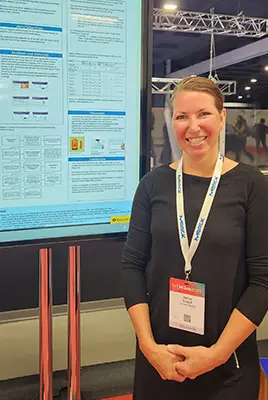
Renee Colsch, PhD, RN, SCRN, CQ, juggles multiple roles within the nursing profession. Colsch serves as an Associate Professor and Graduate Core Coordinator at St. Catherine University, in St. Paul, MN, where she instructs and mentors future nursing leaders. Simultaneously, she contributes as a Nurse Scientist and Professional Development Practitioner Educator at the Minneapolis Veterans Health Administration. Her impressive credentials include being an alumna of the Center for Health Equity Research and a recent alum of the Veterans Health Administration Postdoctoral Quality Scholars Fellowship program.
Colsch’s journey into nursing began with a pivot from interest in special education teacher. She earned her Associate Degree in Nursing, and quickly found her calling in serving others. Following graduation, she joined the Air Force Reserve, where her experiences shaped her commitment to excellence and service.
“I deployed to Iraq in 2007, and when I returned… I knew I wanted to go back to school for a graduate degree, and at the time, I thought I wanted to be a nurse anesthetist.” shared Colsch. She completed her BSN and then went on to complete a Master’s in Nursing Education.
Driven by Purpose
Colsch’s decision to pursue a PhD in Nursing was deeply inspired by the tragic loss of her father to ventilator-associated pneumonia and stroke. “My interest to question and know more inspired me to pursue a PhD in order to contribute to critical advancements in stroke care and prevention and to better equip healthcare professionals with the tools to make a lasting difference in the lives of patients and their families.”
At the University of North Dakota, she found a PhD in Nursing program that aligned with her need for flexibility, offering online coursework complemented by twice a year hands-on learning and collaboration.
“I also chose to pursue my PhD at UND because of its strong emphasis on rural issues, which was particularly appealing to me,” says Colsch. The university's commitment to addressing the unique challenges faced by rural communities aligns with my personal and professional interests.”
Transforming Research into Practice
Colsch’s research bridges the gap between academic studies and clinical practice. She focuses on developing evidence-based models tailored to Veterans' unique cultural needs, with the ultimate goal of improving health outcomes. Additionally, her work addresses sex-specific cardiovascular stroke disparities among women, a vital area of study in advancing gender-specific healthcare.
“As an Air Force Veteran and daughter of a Vietnam Veteran, this research matters to me and the field of nursing” says Colsch. “It addresses critical gaps in care for Veterans and women, ensuring that evidence-based models are culturally tailored and clinically relevant, ultimately improving health outcomes and advancing the understanding of sex-specific cardiovascular stroke disparities.”
Professional Impact and Collaboration after earning a Nursing PhD
Colsch is a board member of the American Heart and Stroke Association’s Council on Cardiovascular and Stroke Nursing Committee. Her involvement has amplified the reach and impact of her work. She has presented at numerous conferences, collaborated on research projects, and received grants to further her work.
Since earning her PhD in Nursing, Colsch has completed two postdoctoral fellowships and continues to push the boundaries of nursing research and practice in her field.
Advice for those seeking Nursing PhD
Colsch encourages prospective Nursing PhD students to prepare for a journey of both personal and professional growth. “Developing and having a clear research focus in mind that aligns with your passion and interests is important,” she advises. “Remember that your research can significantly impact healthcare practices and policies.”
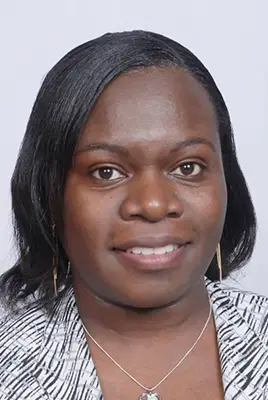
Residing in Alexandria, Virginia, Brenda Sanya, PhD, RN, CPAN, works as a clinical RN in the Post Anesthesia Recovery Unit (PACU). She also serves as a council member for the Nursing Research and Evidence-Based Practice Council and an Abstract Reviewer, roles that showcase her commitment to advancing nursing practice.
Why Pursue PhD in Nursing?
With a Bachelor of Science in Nursing (BSN) and a Master of Science in Nursing (MSN) complete, Sanya realized that a PhD in nursing would open additional opportunities. “I recognized that a PhD would push me to grow,” Sanya shares. “I wanted to move beyond bedside nursing and contribute to the broader healthcare field by influencing policies, evidence-based practices, and systems that impact patient outcomes.”
Dr. Sanya chose UND’s PhD program for its commitment to rural health, affordability, and scheduling. She appreciated the university’s focus on addressing health disparities in underserved and often overlooked communities and its reputation for producing nurse leaders. “This focus provided an opportunity to learn and understand the challenges faced by marginalized communities where nursing innovation is urgently needed,” she says.
Pioneering Research on Self-Care
Sanya’s dissertation focused on self-care, a topic deeply personal to her as a nurse who has witnessed the mental, emotional, and physical toll of caregiving. Her research, grounded in the Theory of Planned Behavior, examined how attitudes, norms, and behavioral control influence nurses’ intentions to engage in self-care. She discovered that sustainable self-care is essential for nurse resilience and retention, with far-reaching implications for patient outcomes.
“My research provides self-care strategies to enhance resilience, improve job satisfaction, and retain talented nurses in the field,” Sanya explained. “By influencing policies and programs that prioritize nurse wellness—through workplace initiatives, leadership training, and tailored support systems—my expertise aims to foster healthier workforce, communities, and transformative care environments.”
Her work also delved into the neurobiological aspects of self-care, highlighting its influence on stress regulation and emotional wellness.
Success at UND with a PhD in Nursing
Dr. Sanya credits her success to the exceptional mentorship of UND faculty, especially her advisor, whose guidance in research was instrumental. She also valued the program’s academic resources, including specialized databases and research tools. “These tools were essential for conducting a thorough and well-rounded investigation into my focus on wellness and self-care,” says Dr. Sanya.
Additionally, rigorous coursework and regular seminars deepened her understanding of research methodologies and provided opportunities to refine her work, gain feedback, and build confidence as a scholar.
Professional Contributions and Achievements
Dr. Sanya actively contributes to the nursing field through her involvement in professional organizations such as the American Association of PeriAnesthesia Nurses (ASPAN). She also serves on the Abstract & Awards Council of a Magnet Nursing team fostering nurses’ engagement in scholarly work and highlighting their achievements. Her dedication to research has been recognized with awards such as Best Research Poster at the 2024 Inova Nursing Research and Evidence-Based Practice Symposium. She has also presented at the Midwest Nursing Research Society and is set to showcase her work at ASPAN in 2025.
Dr. Sanya envisions creating sustainable wellness programs that integrate mindful self-care and resilience practices, helping healthcare professionals and the community to thrive in demanding environments with stressful circumstances. She also has plans to write books and articles on wellbeing and make it accessible and practical for healthcare professionals and the community while continuing as an advocate for change through public speaking.
Nursing PhD Faculty
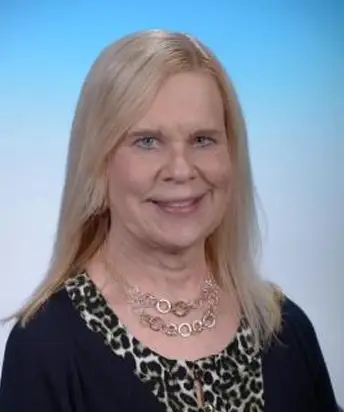
- 701.777.7452
-
CNPD Building Room 360
Grand Forks ND 58202-9025
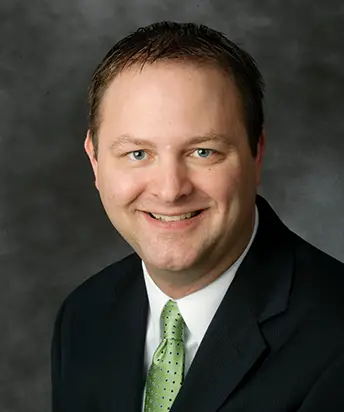
- kevin.buettner@UND.edu
- 701.777.5915
-
CNPD Building Room 339
Grand Forks ND 58202-9025
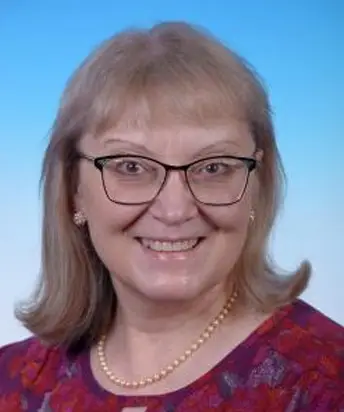
- 701.777.2699
-
NPCBR Building Room 380G
Grand Forks ND 58202-9025
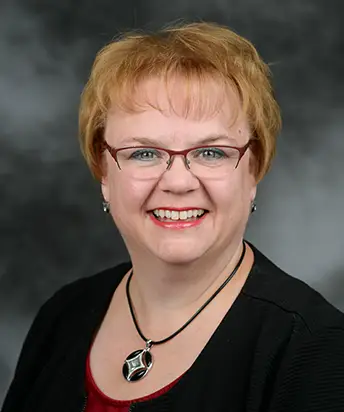
- tracy.evanson@UND.edu
- 701.777.4559
-
NPCBR Building Room 380H
Grand Forks ND 58202-9025
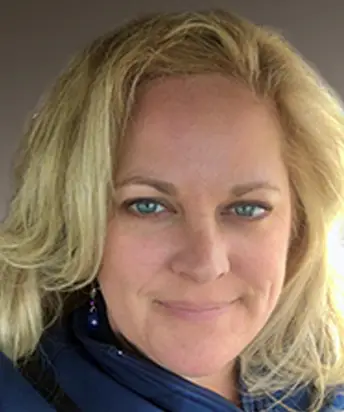
- 701.777.4557
-
Nursing Building Room 360
Grand Forks ND 58202-9025
